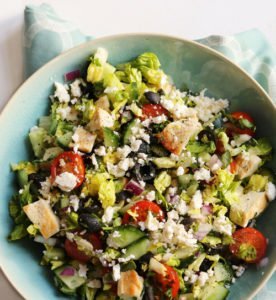The Mediterranean diet is a popular eating pattern inspired by the traditional dietary habits of countries bordering the Mediterranean Sea.
It involves a high consumption of fruits, vegetables, whole grains, legumes, nuts. You should also use olive oil and moderate fish, poultry, dairy, and red wine consumption characterizes it.
The Mediterranean diet has been shown to provide various health benefits. These include reducing the risk of chronic diseases such as heart disease, diabetes, and cancer.
One of the main reasons why the Mediterranean diet is so popular is because of its health benefits.
The Mediterranean diet has reduced the risk of chronic diseases, including heart disease, diabetes, and cancer.
Research has also shown that the Mediterranean diet can help to reduce inflammation in the body, which is a key driver of many chronic diseases. In addition, the Mediterranean diet is rich in antioxidants, which can help to protect the body against damage caused by free radicals.
Another reason the Mediterranean diet is so popular is that it is easy to follow and incorporates a variety of delicious and nutritious foods.
The Mediterranean diet emphasizes whole foods and minimally processed foods, which makes it a healthy and sustainable way of eating.
The Mediterranean diet is flexible and can be adapted to suit individual preferences and dietary needs.
Here are the top five benefits of the Mediterranean diet, supported by scientific data:
One: Reduced risk of heart disease
The Mediterranean diet has been shown to reduce the risk of heart disease by up to 30%. This is thought to be due to the high consumption of fruits, vegetables, whole grains, and olive oil, which can help to lower cholesterol levels and reduce inflammation in the body.
Two: Improved brain health
The Mediterranean diet has been linked to improved cognitive function and a reduced risk of cognitive decline. This is thought to be due to the high consumption of fish, nuts, and olive oil, which are rich in omega-3 fatty acids and other important nutrients for brain health.
Three: Reduced risk of cancer
The Mediterranean diet has been shown to reduce the risk of certain types of cancer, including breast, colon, and prostate cancer.
Research assumes that these results are due to the high consumption of fruits and vegetables. Foods high on the list are whole grains, and olive oil, which are rich in antioxidants and other nutrients that can help to protect against cancer.
Four: Improved weight management
The Mediterranean diet is effective for weight management and can help to reduce the risk of obesity. This is thought to be due to the high consumption of whole foods and moderate protein and dairy consumption.
Six: Improved overall health and well-being
The Mediterranean diet has been linked to improved overall health and well-being.
It also includes reduced inflammation, improved gut health, and improved mood.
This is thought to be due to the high consumption of nutrient-dense foods and the emphasis on whole and minimally processed foods.

Mediterranean chicken salad
Ingredients
For the dressing
- 2 tbsp Lemon juice
- 2 tbsp Olive oil
- 1/4 tsp Herbs de provence
- 1 tsp Minced garlic
- 1 tbsp Apple cider vinegar
For the salad
- 300 g Chicken breast cooked and chopped
- 30 g Feta cheese crumbled
- 2 cup Iceberg lettice chopped
- Handful or parsley - chopped
- Handful or basil - chopped
- 1 Small red onion
- 1/4 Cucumber
- 6 Cherry tomatoes
- 10 Black olives
Instructions
- First prepare the dressing by mixing all the dressing ingredients together in a cup. Season to taste with salt and pepper. Next, prepare and chop all the salad ingredients and place in a bowl. Pour over the dressing and mix well. Divide between two bowls and serve. • Gluten free • Low carb • High protein • Quick
